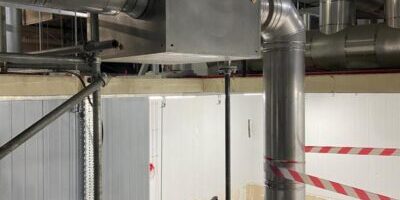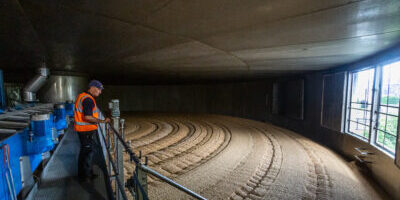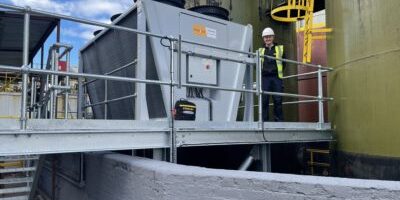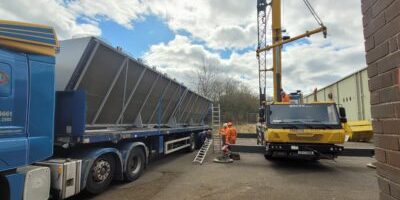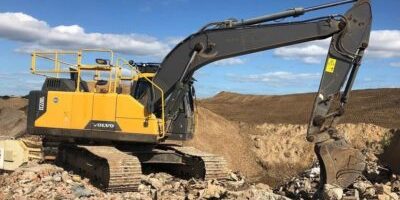Heat energy is critical to the chemical processing industry and heat recovery and reuse are central to the energy management process. Turnbull and Scott design engineers work closely with process engineers from the industry to support this.
Plan A
A process engineering team approached us to design a thermal fluid economiser to capture and transfer flue gas heat to a thermal oil, replacing an old steam generator. The customer’s goal for the heat exchanger was to raise the heat of the thermal oil from 50oC to 100oC.
The customer’s process engineering team were able to provide key data on the flue gas including outlet temperature from the boiler and flow rate and also the flow rate of the thermal oil.
Using our proprietary research-backed heat exchanger software SCalc™ and our knowledge of the characteristics of thermal fluids, our design engineers determined that 295kW of duty would be required from the flue gas via the economiser to achieve the target 100oC in the thermal oil.
However, it was determined that only 265kW could be made available from the flue gas at its stated temperature and flow rate in order to achieve the energy balance and avoid temperature crossover. This was, unfortunately, 30kW short of the energy required to achieve the thermal oil target temperature.
The conundrum was, could the thermal oil conditions i.e. flowrate or temperature be altered to reduce the required duty to 264kW? After considerable investigation it was concluded that the conditions couldn’t be changed, so the customer’s process engineering team went back to the drawing board to consider how else the ‘waste’ process heat could be used.
Plan B
After some time, the team were back in touch with plan B. This plan involved recovering flue gas heat into boiler feed water. This proved a straightforward design with the only constraint to be factored in being the limited available physical space, which is not unusual.
The goal in plan B was to raise the temperature of the boiler feedwater from 80oC to 170oC. Our exchanger software SCalc™ set to work and determined that 270kW of heat energy could be recovered and transferred to achieve that goal.
The energy savings this boiler feedwater economiser will deliver are not inconsiderable. Assuming a 24/7 operation and a gas price for a large energy consuming plant to be circa 1.6p/kWh, the savings would be as follows:
- 270kW x 1.6p/kWh = 432 pence/kWh (or £4.32/kWh)
- A gas hot water boiler running 24/7 for 50 weeks a year in the chemical plant, forecast savings = £4.32*24*7*50 = £36,288 p.a.
Click below to view our Waste Heat Recovery & Economisers web page.


